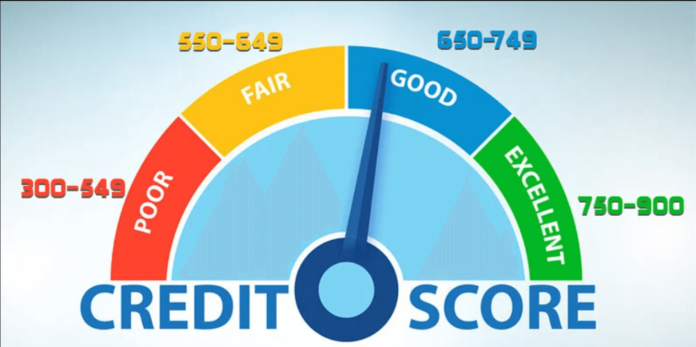In the financial landscape, your credit score plays a pivotal role in your ability to access loans, credit cards, and various financial opportunities. One of the credit score ranges that often gets attention is the “Credit Score.” But what exactly does it mean, and how does it impact your financial life? This article will dive deep into the world of fair credit score, exploring what they are, why they matter, how to improve them, and much more.
Understanding Fair Credit Score
A fair credit score typically falls within the range of 580 to 669. It’s a score that reflects your creditworthiness and helps lenders assess the risk of extending credit to you. While it may not be considered excellent, a credit score is not necessarily a poor one. It signifies that you’ve had some credit issues or limited credit history but have maintained your financial commitments reasonably well.
Why Fair Credit Matters
Fair credit matters because it opens doors to financial opportunities that might otherwise be unavailable. Lenders, landlords, and even potential employers may use your credit score to evaluate your trustworthiness and responsibility. With a credit score, you can qualify for loans, credit cards, and rental agreements, although the terms may not be as favorable as those offered to individuals with higher credit scores.
How to Check Your Fair Credit Score
Checking your credit score is the first step in understanding your financial standing. You can obtain your credit score from credit bureaus or various online platforms. Many credit card companies provide free access to your credit score as part of their services. Regularly monitoring your score helps you stay informed about your financial health.
Tips to Improve a Fair Credit
If you find yourself in the fair credit range and want to improve it, there are several steps you can take. Start by making on-time payments on your existing debts, reducing credit card balances, and avoiding new debts whenever possible. Gradually, your score can rise as you establish a history of responsible credit use.
The Importance of Responsible Credit Usage
Maintaining a credit score involves responsible credit usage. This means using your credit wisely, paying bills on time, and not maxing out your credit cards. By doing so, you demonstrate to creditors that you are a reliable borrower, which can help boost your score over time.
Common Factors Affecting Fair Credit
Various factors can impact your credit score. Late payments, high credit card balances, and derogatory marks from collections or bankruptcies can drag your score down. Understanding these factors can help you take proactive steps to mitigate their impact.
How to Rebuild a Fair Credit
If your fair credit has taken a hit, don’t despair. It is possible to rebuild it. This involves making consistent, on-time payments, reducing your debt, and potentially seeking help from credit counseling services.
Credit Score Myths Debunked
There are numerous misconceptions surrounding credit scores. It’s important to dispel these myths. Contrary to popular belief, a credit score does not mean you’re a high-risk borrower. Instead, it indicates your credit history is still developing.
Maintaining a Fair Credit
Once you’ve achieved a credit score, it’s crucial to maintain it. This involves staying disciplined with your financial commitments, avoiding late payments, and being mindful of your credit utilization ratio.
Balancing Credit and Debt
Balancing credit and debt is key to maintaining a credit score. Using your credit wisely without accumulating excessive debt is a delicate act, but it’s essential for long-term financial stability.
Credit Cards for Fair Credit
If you have a fair credit, you can still access credit cards designed specifically for your credit range. These cards can help you rebuild your credit and improve your financial standing.
Benefits of a Credit Score
A credit score opens doors to better financial opportunities. You may qualify for loans with lower interest rates and more favorable terms, saving you money in the long run.
Importance of Regular Credit Monitoring
Regularly monitoring your credit is vital. It helps you identify inaccuracies, track progress, and stay vigilant against identity theft or fraud. Read more…
Conclusion
In conclusion, a fair credit score is not a dead end; it’s a starting point. With the right financial habits and responsible credit use, you can improve your score and access more financial opportunities. Remember, your credit score reflects your financial journey, and with dedication, you can shape it to your advantage.
Frequently Asked Questions
- What is a fair credit score?
- A credit score typically falls within the range of 580 to 669. It reflects your creditworthiness and affects your ability to access loans and credit cards.
- How can I improve my credit score?
- You can improve your credit score by making on-time payments, reducing debt, and practicing responsible credit use.
- Are there credit cards designed for fair credit?
- Yes, there are credit cards specifically designed for individuals with fair credit. They can help you rebuild your credit.
- Why is it important to monitor my credit regularly?
- Regular credit monitoring helps you detect errors, track your progress, and safeguard against identity theft or fraud.
- Can I qualify for loans with a fair credit score?
- Yes, you can qualify for loans with a credit score, but the terms may not be as favorable as those offered to individuals with higher credit scores.

